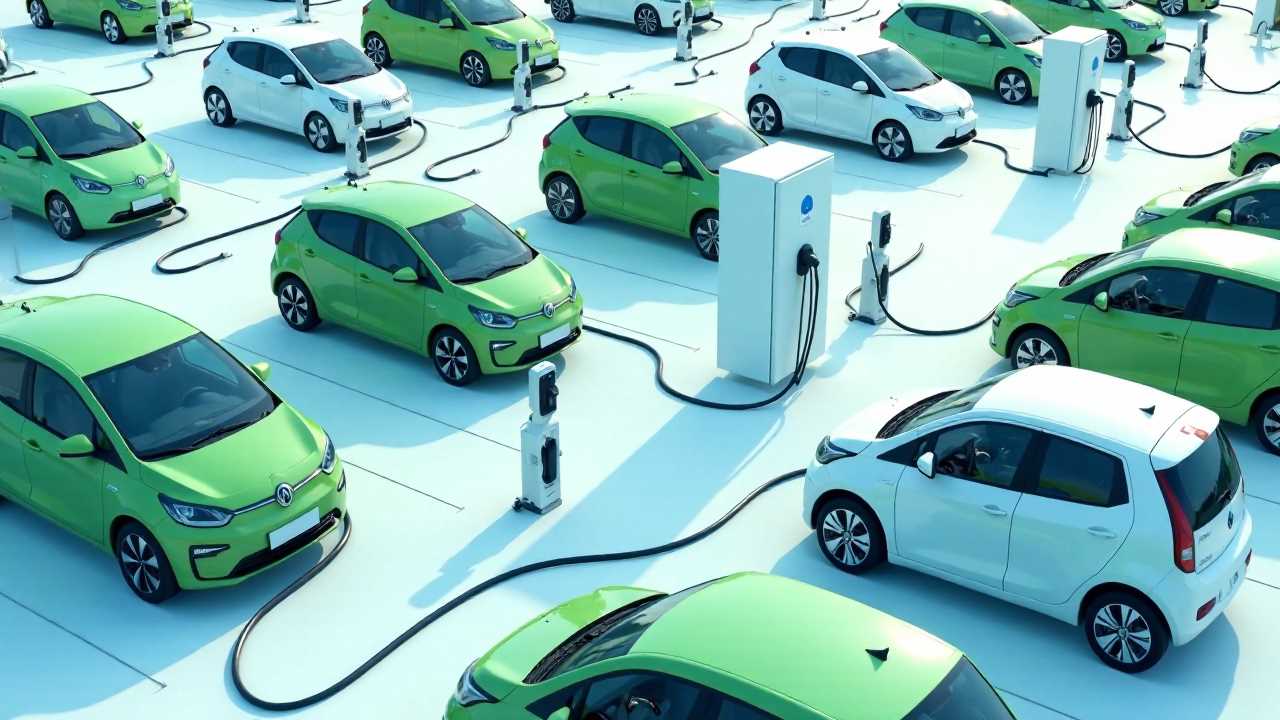
The Importance of Electric Vehicle Charging Solutions
As the world shifts towards sustainable practices, the demand for electric vehicle charging solutions has never been more critical. These solutions not only facilitate the transition to clean transportation but also play a pivotal role in reducing emissions and promoting the use of renewable energy sources. The integration of electric vehicles (EVs) into our daily lives is a significant step toward a greener future, and efficient charging infrastructure is at the heart of this transformation.
Understanding Electric Vehicle Charging Solutions
Electric vehicle charging solutions encompass a variety of technologies and systems designed to provide power to electric vehicles. These solutions range from home charging stations to extensive public charging networks. The effectiveness of these systems is influenced by several factors, including battery technology, charging speed, and grid integration.
Battery technology has advanced significantly, allowing for faster charging times and longer ranges. Modern EVs are equipped with high-capacity batteries that can be charged quickly, making them more convenient for everyday use. The development of fast-charging stations has also contributed to the growing adoption of electric vehicles, as they allow drivers to recharge their vehicles in a fraction of the time it takes with traditional charging methods.
Promoting Sustainability through Renewable Energy
One of the most compelling aspects of electric vehicle charging solutions is their potential to harness renewable energy. By integrating solar, wind, or other renewable sources into the charging infrastructure, we can significantly reduce the carbon footprint associated with electric vehicle usage. Charging stations powered by renewable energy not only provide a cleaner source of electricity but also contribute to the overall sustainability of the energy grid.
The synergy between electric vehicles and renewable energy sources is particularly evident in smart grid technologies. These systems allow for real-time monitoring and management of energy consumption, ensuring that charging occurs when renewable energy is most abundant. This not only maximizes the use of clean energy but also helps stabilize the grid, making it more resilient to fluctuations in demand.
Emissions Reduction and Clean Transportation
The transition to electric vehicles is a vital component of global efforts to achieve emissions reduction targets. Traditional gasoline and diesel vehicles are significant contributors to air pollution and greenhouse gas emissions. By replacing these vehicles with electric alternatives, we can drastically cut emissions and improve air quality in urban areas.
Electric vehicle charging solutions play a crucial role in this transition. By providing accessible and efficient charging options, we encourage more consumers to choose electric vehicles over their fossil fuel counterparts. The more widespread the adoption of EVs, the greater the impact on reducing overall emissions.
Grid Integration: A Key Component of Charging Infrastructure
Grid integration is an essential aspect of electric vehicle charging solutions. As the number of electric vehicles on the road increases, so does the demand for electricity. Effective integration of charging stations into the existing power grid is vital to ensure that we can meet this demand without overloading the system.
Smart charging technologies enable vehicles to communicate with the grid, allowing for optimized charging schedules based on energy availability and demand. This not only helps to balance the load on the grid but also provides opportunities for consumers to take advantage of lower electricity rates during off-peak hours. By aligning charging with periods of high renewable energy generation, we can further enhance the sustainability of electric vehicle usage.
Future Trends in Electric Vehicle Charging Solutions
The future of electric vehicle charging solutions is bright, with numerous innovations on the horizon. As battery technology continues to evolve, we can expect even faster charging times and improved energy efficiency. Additionally, advancements in wireless charging technology may eliminate the need for physical connections altogether, making the charging process more convenient for users.
The expansion of charging networks is also a priority for many governments and private companies. As more charging stations become available, the range anxiety that often deters potential EV buyers will diminish. Public-private partnerships will play a crucial role in developing this infrastructure, ensuring that charging stations are strategically located and accessible to all.
A Sustainable Future Awaits
In summary, electric vehicle charging solutions are integral to the transition towards sustainable clean transportation. By focusing on sustainability, renewable energy, emissions reduction, grid integration, and battery technology, we can create a robust infrastructure that supports the widespread adoption of electric vehicles. As we move forward, it is essential to prioritize these solutions to ensure a cleaner, greener future for generations to come. The journey towards sustainable transportation is not just a possibility; it is an imperative that we must embrace wholeheartedly.
 Business & FinanceHealth & MedicineTechnologyLifestyle & CultureScience & EnvironmentWorld NewsPrivacy PolicyTerms And Conditions
Business & FinanceHealth & MedicineTechnologyLifestyle & CultureScience & EnvironmentWorld NewsPrivacy PolicyTerms And Conditions
